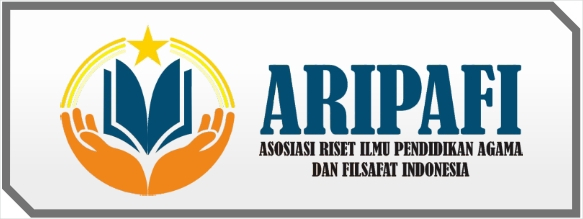Hubungan Antara Pendekatan Konseling Berpusat Pada Anak (Pendekatan Client Centered) Dengan Efektivitas Konseling Individual Pada Siswa SMA (Studi Kasus Di SMA Dhammasavana, SMA Dharma Suci, dan SMA Triratna)
DOI:
https://doi.org/10.47861/dv.v4i1.22Keywords:
Client Centered, Individual Counseling Effectiveness, Correlation Research, Motivation, Student Capabilities.Abstract
With the era of digital development 4.0 provides improved lives for individuals to be able to adjust well. The role of the
counselor adds importance to students as a shelter for students. Help needs counselors as a place to share opinions Center
Center helps students to express their feelings to the counselor.
This study aims to find conversations or relationships between asking for child-centered counseling (asking for ClientCentered) by using individual counseling in high school students. Read the full story which is pleased to introduce students
who are efficient and effective is very important to know, understand where the motivation and capacity of students to make
changes. This research is a quantitative type of ex-post-facto research, discussing the type of causal research (discussion
research), which is a study that discusses data collection to determine whether there is a relationship and the relationship
between variables or more (Widarto, 2013: 3). The subjects of the study were high school students Tri Ratna and Dharma
Suci, Dhammasvana High School located in West Jakarta. The sampling technique is done by simple random sampling
(Simple Random Sampling), and sample calculation is determined using the Slovin formula. The data used in this study are
secondary data and primary data. Secondary data were obtained by conducting literature studies and relevant literature
studies. Meanwhile, primary data were obtained using an instrument in the form of a questionnaire. Questionnaires are used
to obtain client-centered therapy scores and meet individual counseling. The results showed the difference between a clientcentered counseling model (child-centered counseling) with individual counseling approval
References
Badrujaman, Aip. 2014. Teori dan Aplikasi Evaluasi Program Bimbingan & Konseling. Jakarta: PT Index.
Basuki, Sulistyo. 2010. Metode Penelitian. Jakarta: Penaku.
Ballatine Dyes,Fiona.2016.Keterampilan dan Studi Konseling,Jogyakarta: Pustaka Belajar
Desmita. 2012. Psikologi Perkembangan Peserta Didik. Bandung: Remaja Rosdakarya.
Ferry,Wayne.2010.Dasar-Dasar teknik Konseling.Jogyakarta:Pustaka Belajar
Gibson, Robert, dan Mitchell, Marianne, 2011. Bimbingan dan Konseling (edisi ke 7), Jakarta: Pelajar.
Inskipp,Francesca,2012.Pelatihan keterampilan Konseling,Jogyakarta:Pustaka Belajar.
Komalasari, Gantina, dan Wahyuni, Eka, 2011. Teori dan Tenik Konseling, Jakarta: PT Indeks.
Komalasari, Gantina, dan Wahyuni, Eka, 2016. Asesmen Teknik Non Tes Dalam Perspektif BK Komprehensif, Jakarta: PT
Indeks.
Kontur, Ronny. 2007. Metode Penelitian. Jakarta: PPM.
Nelson-Jones,Richard,2011.Teori dan Praktik Konseling dan terapi.Jogyakarta: Pustaka Pelajar
Noor, Juliansyah. 2013. Metodologi Penelitian. Jakarta: Kencana Prenada.
Nurhayati, Eti. 2011. Psikologi Pendidikan Inovatif. Yogyakarta: Pustaka Belajar
Renita, Mulyaningtyas. 2007. Bimbingan dan Konseling. Jakarta: Erlangga.
Santun Naga, Dali. 2013. Teori Sekor Pada Pengukuran Mental. Jakarta: PT Nagarani Citrayasa.
Sukardi, Dewa Ketut, 2008. Pengantar Pelaksanaan Bimbingan dan Konseling di Sekolah, Jakarta: PT Rineka Cipta.
Sugiyono, 2015. Cara Mudah Menyusun Skripsi, Tesis, dan Disertasi, Bandung: Alfabet.







